Top Real Estate Developers Shaping Dubai's Market
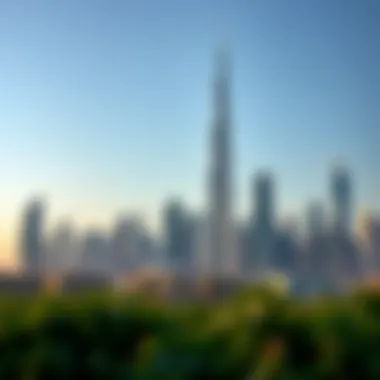
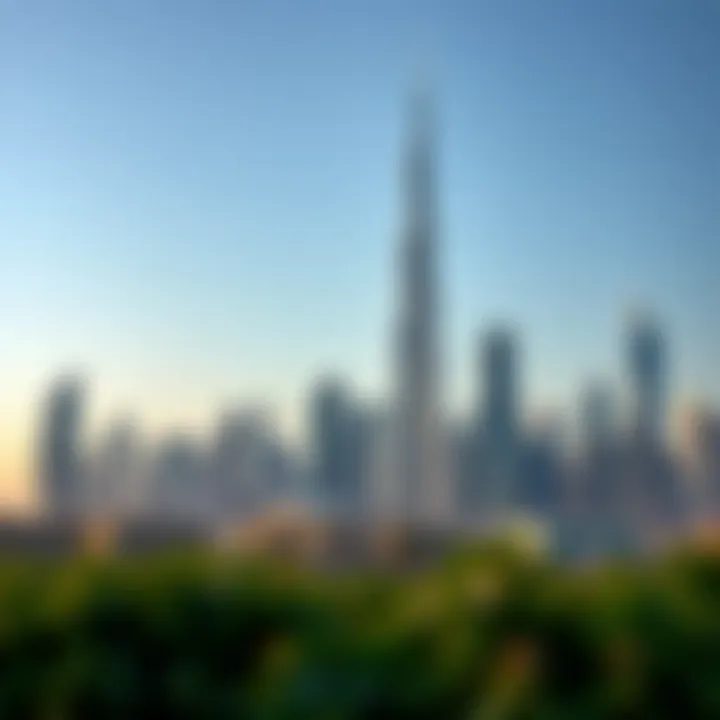
Intro
Dubai's real estate market has become a synonym for opulence and innovation. Over the past few decades, the city has transformed into a global hub, attracting investments from all corners of the world. Amidst this dynamic landscape, prominent real estate developers have played pivotal roles in shaping the properties and infrastructure that define this bustling metropolis. This article provides a deep dive into these key players, dissecting their signature projects and market strategies while assessing both the residential and commercial sectors in which they operate. By gaining insight into these developers, readers can better appreciate not only their contributions but also the broader market trends influencing investment opportunities in the UAE's crown jewel.
Equipping investors, expatriates, homeowners, and agents alike with knowledge is the core of this investigation. Let us initiate our exploration by analyzing the prevailing market conditions, as well as forecasts for growth, shedding light on the currents that drive this ever-evolving field.
Overview of Dubai's Real Estate Market
Dubai's real estate market is a vibrant tapestry of opportunities, challenges, and rapid transformations. This overview will set the stage for a deeper understanding of the leading developers who play a pivotal role in shaping that landscape. It’s essential to grasp the interplay of factors here, as they act like the strings of a finely woven fabric. Whether you're an investor eyeing profitable ventures or a homeowner considering a new space, comprehending this market is crucial.
Economic Factors Driving Growth
Dubai's property market thrives on a mix of economic inputs that often resemble the gears of a well-oiled machine. First on the list, tourism is a heavy hitter. With attractions like the Burj Khalifa and Palm Jumeirah, not to mention events such as the Expo 2020, the city constantly draws international visitors. This influx stimulates demand for short-term rentals which, in turn, boosts property values.
Furthermore, the government actively encourages foreign investment through various initiatives. The introduction of long-term visas for expatriates, coupled with a straightforward purchasing process for non-residents, adds an irresistible allure. Not to forget, the diversification of the economy beyond oil has been a game changer, fostering a more stable environment for real estate growth.
These economic factors conjoin, paving a path for developers and investors alike to capitalize on the bustling market.
Regulatory Environment and Its Impact
Navigating the regulatory framework in Dubai is akin to walking a tightrope; one must balance caution with opportunity. The legal landscape here has undergone transformations aimed at enhancing transparency and boosting investor confidence. For instance, the introduction of escrow accounts has ensured that buyers' funds are protected, effectively reducing risks associated with property purchases.
Moreover, the Real Estate Regulatory Agency (RERA) provides oversight, establishing a structured communication channel between developers and buyers. This level of regulation prevents shady dealings, helping to maintain the integrity of the property market.
However, there are challenges. While regulations are there to protect, they may also slow down processes. Developers and investors must remain agile, aligning their strategies with the changing rules.
Emerging Trends in Property Development
In the bustling hub of Dubai, property development isn’t just about brick and mortar; it’s deeply intertwined with innovation and responsiveness to market needs. One prominent trend is the increasing focus on sustainability. Developers are embracing green building practices, integrating eco-friendly materials and energy-efficient designs into their projects. This not only caters to a growing environmentally conscious buyer base but also aligns with Dubai’s vision of becoming a sustainable city.
Moreover, there’s a noticeable shift towards smart technology. Homes equipped with IoT devices and buildings utilizing smart systems are now par for the course. This tech-savvy approach attracts tech-focused investors and buyers seeking modern conveniences.
To sum it up, understanding the landscape of Dubai's real estate market is indispensable for anyone looking to dive into this dynamic sector. The economic undercurrents, regulatory standards, and emerging trends all paint a detailed picture of what to expect. As we move forward, examining the major players driving this market will further illuminate the narrative.
Prominent Developers in Dubai
The real estate landscape in Dubai is shaped significantly by the prominent developers wandering through this city of dreams. These powerhouse firms not only construct buildings but also set the tone for the sector. Their choices and strategies impact everything from market pricing to community development. By focusing on these developers, one gains insights into the architectural aesthetics, investment viability, and future projects that are shaping the urban tapestry of Dubai.
Emaar Properties
Key Projects and Achievements
Emaar Properties stands tall among the giants, with projects that are often a benchmark for excellence. One such landmark achievement is the Burj Khalifa, the world’s tallest building, which has redefined the skyline of Dubai. The significance of key projects lies not just in their grandeur but also in their ability to draw both tourists and investors alike.
The key characteristic of Emaar's projects is their blend of luxury and functionality. For instances, they launched the Dubai Mall, a retail oasis that does more than just sell; it offers experiences, acting as a catalyst for socialization and tourism in the region. These projects have become beneficial choices for investors looking for high returns. However, with luxury comes the responsibility of high maintenance and management costs.
Market Position and Strategies
Emaar's market position is unwavering, bolstered by a solid brand reputation and wide-ranging strategies that include partnerships with high-end brands and focusing on mixed-use developments. Their strategy has transformed residential neighborhoods into thriving communities, making them popular among buyers and renters. This approach to development attracts foreign investment as well. Yet, it also faces the disadvantage of potential over-commercialization, which may detract from community intimacy.
Future Developments
Looking ahead, Emaar has plans for numerous developments that promise to elevate the standards of living. Notably, their focus on integrated smart cities is a game changer. By incorporating innovative technology into their upcoming projects, they ensure sustainability and connectivity for future residents. This characteristic positions their future developments as a compelling choice for investors. However, the challenge lies in maintaining the quality and affordability of these developments in a rapidly evolving market.
Deyaar Development
Signature Developments
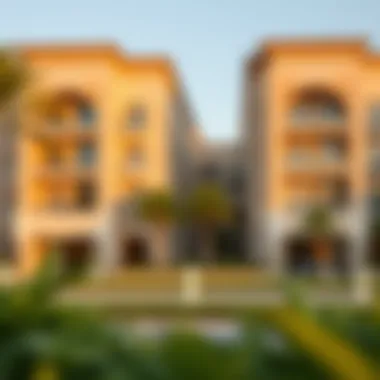
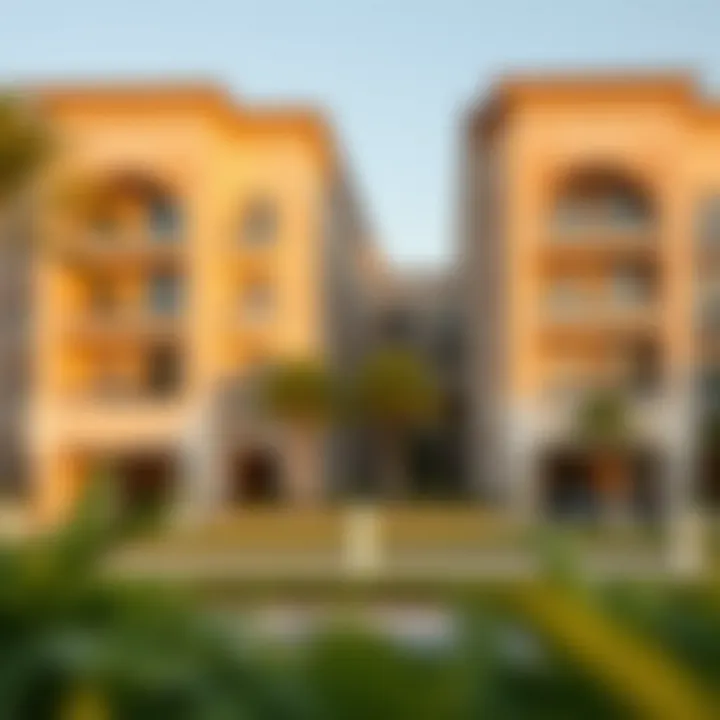
Deyaar Development has carved its niche through signature developments that emphasize residential and commercial comforts. Their signature project, The Montrose, encapsulates a luxurious lifestyle while offering community-centric amenities. The importance of these developments reflects Deyaar's commitment to creating environments where residents feel at home.
The hallmark of these developments is the emphasis on modern design coupled with environmental considerations. It’s not just about building structures but creating sustainable lifestyles. This approach appeals widely to environmentally-conscious buyers, though the high initial pricing can be a barrier to entry.
Crisis Management Approaches
In the face of market volatility, Deyaar's crisis management approaches have set a precedent. Their focus on transparency and communication has bolstered trust with investors and buyers. This characteristic, maintaining stakeholder confidence during economic downturns, makes it a beneficial part of their business model.
Deyaar has integrated flexible financing options and promotional campaigns to weather storms. Still, some argue that during severe market fluctuations, the efficacy of crisis measures may be tested, exposing gaps in operational resilience.
Sustainable Practices
Deyaar is also committed to sustainability through its projects. For example, incorporating green building technologies in their structures highlights their commitment to environmental responsibility. The focus on sustainable practices not only appeals to eco-friendly buyers but can potentially lower operating costs, fostering a win-win situation. However, the initial investment in green technologies can be quite steep.
Nakheel
Revolutionary Projects
Nakheel is known for its revolutionary projects, most notably the Palm Jumeirah, which is a marvel of engineering and planning. Such projects bring about a transformation in lifestyle and tourism, making them cornerstones in Dubai's real estate portfolio. The characteristic of these projects is their sheer audacity and scale.
Nakheel's projects resonate with a broader audience, attracting luxury seekers and daily renters alike. The unique features include artificial islands and extravagant villas which redefine luxury. While these developments enhance property desirability, they can strain local resources and require significant ongoing infrastructure investment.
Community Developments
Community developments by Nakheel reflect an integrated lifestyle that promotes social interactions. The character of these developments revolves around parks, retail spaces, and community centres, providing residents with a complete lifestyle experience. This approach is effective in fostering community spirit, but can lead to issues if not managed well, including overcrowding.
Financial Performance
In terms of financial performance, Nakheel has shown strong resilience, backed by strategic partnerships and diversification of their offerings. Their financial decisions significantly impact market trends, as their success often leads to increased confidence among other investors.
However, their financial performance can also be linked to external factors such as economic downturns and regulatory changes in Dubai, leaving them vulnerable when market challenges arise.
Dubai Properties Group
Market Influence
Dubai Properties Group has a substantial influence on the market through its vast array of residential and commercial projects. Their input affects property prices and demand dynamics in the UAE. The characteristic of their influence is rooted in their strategic project locations.
Their market approach has made them a crucial player for homeowners and investors alike. However, long-term impacts can also lead to fluctuations in pricing that could make certain areas undervalued or overvalued.
Investment Milestones
Investment milestones achieved by Dubai Properties Group position them as a forward-thinking entity. Their successful fundraising campaigns and partnerships with local and international investors signify robust investor confidence. Such milestones hold particular importance in attracting future investments and partnerships.
The distinctive feature of these milestones is their ability to pave the way for more ambitious projects. Yet, the pressure to continuously deliver on these investments raises concerns regarding sustainability.
Strategic Vision
Their strategic vision focuses on community integration and innovation, setting them apart in a crowded market. Emphasizing a balanced approach to developments fosters an environment where families thrive. This vision positions them as a favorable option for investors and homebuyers. However, the risk exists if the strategic vision does not materialize, placing uncertainty on future project urgencies.
MAG Property Development
Architectural Innovations
MAG Property Development stands out for its architectural innovations, introducing awe-inspiring designs that challenge traditional norms. Their projects, characterized by sleek designs and cutting-edge technology, provoke interest and discussion within the industry.
This approach allows MAG to attract a specific niche market that values contemporary aesthetics. However, such innovations often come with higher construction costs and the risk that the final output may not meet initial expectations.
Product Offerings
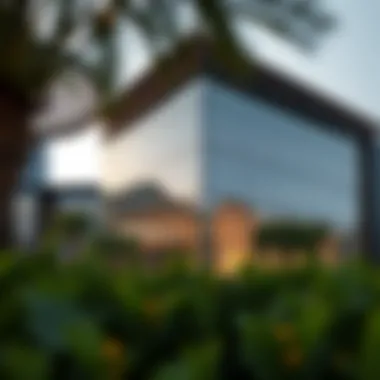
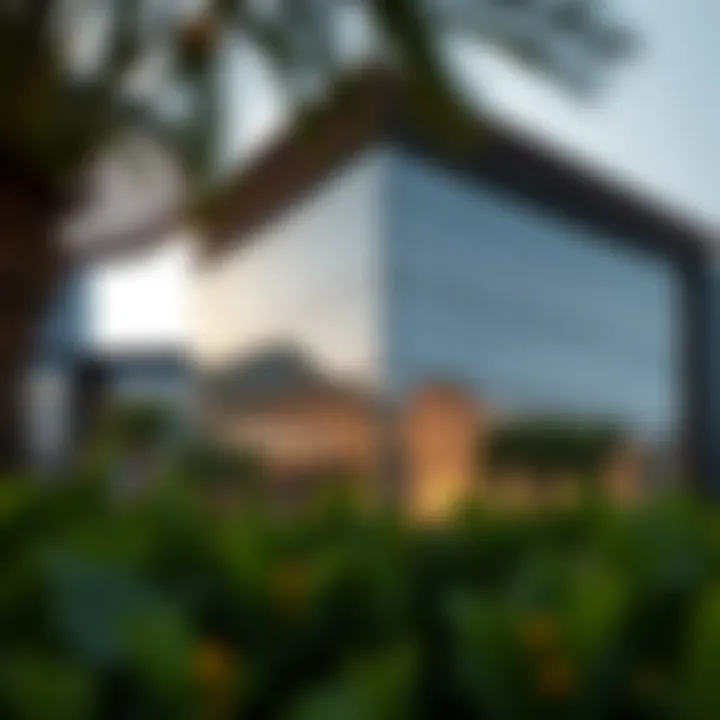
MAG’s product offerings encompass a wide range of properties from luxury villas to affordable apartments. This diverse approach appeals to a broad demographic, making their developments attractive for various buyers. The characteristic lies in their flexibility to cater to different market segments.
The unique nature of their product offerings not only draws in a larger customer base but helps mitigate risks associated with economic fluctuations. However, juggling diverse product types can sometimes dilute brand identity.
Expansion Plans
The company’s expansion plans are ambitious, focusing on acquiring new lands and entering new geographical markets. The characteristic of these plans is the aim to capitalize on growing global demand for real estate. This presents a beneficial opportunity for investors looking for long-term growth.
Yet, aggressive expansion comes with operational risks, including potential overreach if not carefully managed.
Spellman Group
Unique Selling Propositions
Spellman Group's unique selling propositions are rooted in contextual design and community focus, aiming to create long-lasting relationships with residents. This characteristic brings a depth to their projects, making them appealing for buyers who desire more than just a living space.
Their approach fosters community ties and shared experiences. However, there’s a potential downside if the personal touch becomes diluted with scaling operations.
Phase One Projects
Their Phase One projects have been a test bed for ideas and innovations, showcasing their commitment to quality and sustainability. These phases allow for iterative feedback from the market, shaping subsequent developments. The unique feature is the platform-ridden approach where lessons learned are integrated swiftly.
This allows for adaptability but may also lead to project delays if changes are extensive.
Future Outlook
The future outlook of Spellman Group is quite promising, aiming to blend technology with design to create smart living environments. This ambitious vision positions them as a proactive player in an ever-competitive market. However, as technology evolves rapidly, there is a constant need for adaptation, posing challenges in forecasting long-term trends.
Wahat Al Zaweya
Specialized Developments
Wahat Al Zaweya stands out for its specialized developments tailored for niche markets, such as eco-friendly residential communities. This characteristic highlights their commitment to sustainability, attracting buyers who prioritize green living. Such specificity in their developments makes them popular for environmentally conscious individuals.
However, focusing on niche markets can pose risks, especially if demand fluctuates.
Market Niche
Their unique market niche revolves around sustainable living solutions, setting them apart in a crowded landscape. This approach is beneficial in drawing a selective clientele but could limit broader applicability in the general market. Still, the distinctiveness fosters a loyal buyer base.
Integration of Technology
With a focus on integrating technology into their developments, Wahat Al Zaweya enhances quality of life through innovative solutions. Smart home features and community automation are hallmarks of their projects. While this integration can significantly boost property value, it also poses an implementation challenge when considering varying user adoption rates.
Impact of Developers on the Market Landscape
The significance of real estate developers in Dubai's dynamic property market cannot be overstated. These entities carry a hefty weight in shaping the city's skyline and influencing economic vitality. Their endeavors not only alter the aesthetic appeal of the area but also instigate shifts in property values, community planning, and even investor confidence. By assessing the impact of these developers, one can gain a clearer vision of the forces at play within the market and how they respond to ever-changing demands and trends.
Influence on Property Prices
The developers' influence on property prices is profound and multifaceted. When a well-respected developer, like Emaar Properties, launches a new project, it creates a wave of interest. Investors often associate reputable developers with lower risk, thus driving demand.
- Brand Recognition: Properties by established developers typically command higher prices due to brand value. Buyers are willing to pay a premium for assurance that the project meets quality standards.
- Supply and Demand: Launching a new development can sometimes lead to a temporary spike in demand within the area. This, in turn, can inflate prices, especially if the development offers unique amenities or a particular architectural style.
- Market Sentiment: When leading developers announce a project, it can boost overall market sentiment, leading to an increase in surrounding property values. Buyers notice developments as signals of growth and opportunity.
"The quality of a developer’s projects directly correlates with the market’s appetite for growth, impacting prices not just for new developments, but for existing properties in proximity."
Contribution to Urban Development
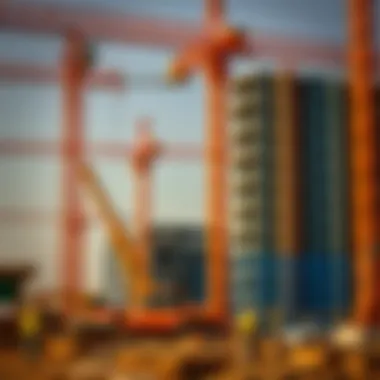
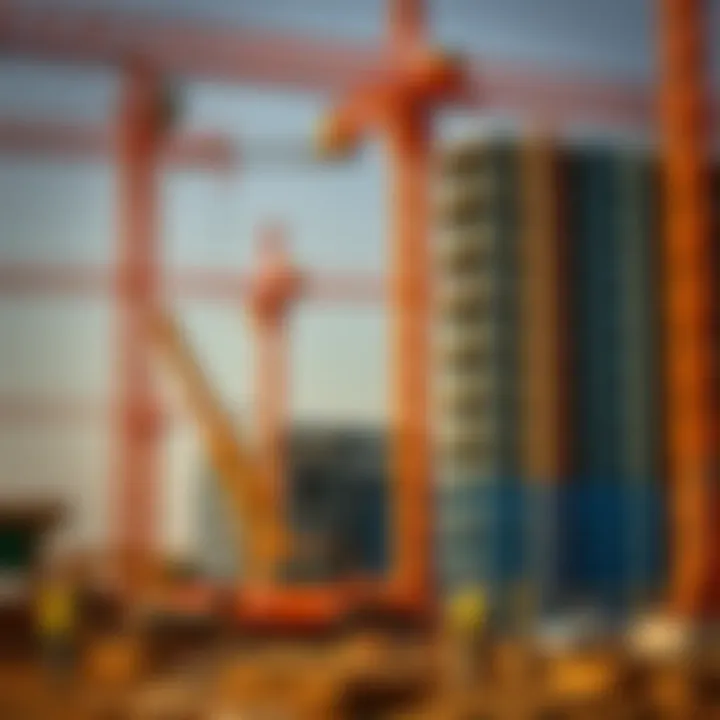
Real estate developers play a vital role in the urban landscape by not just constructing buildings, but by creating communities. Their contributions to urban development are foundational in reshaping neighborhoods and enhancing livability.
- Public Spaces: Many developers focus on integrating public parks, walking paths, and recreational facilities within their projects. This approach enhances community life, improving property values as a result.
- Infrastructure Improvements: Large-scale projects often drive enhancements to infrastructure. For example, new housing developments can lead to upgraded roads and transportation services, which can ease commuting and increase desirability.
- Community Initiatives: The impact extends beyond bricks and mortar. Developers frequently engage in initiatives that foster community spirit, such as sponsoring local events or charitable functions.
Role in Promoting Foreign Investment
In a globalized economy, effective real estate developers serve as catalysts for foreign investment, making Dubai an attractive locale for international stakeholders. Their role in this arena is two-fold:
- Quality Assurance: Developers provide a tangible level of assurance for foreign investors through demonstrated track records and compliance with international standards. When an investor sees a project from a reputable developer, it significantly mitigates perceived risks.
- Regulatory Navigation: Understanding local regulations can be complex for foreign investors. Leading developers possess the expertise to navigate these frameworks, offering strategic insights into property acquisition and development processes.
- Showcasing Potential: By presenting high-quality developments that appeal to a diverse audience, developers showcase the potential of Dubai’s property market, drawing attention and investment from abroad.
By assessing these aspects, it becomes clear that the impact of developers transcends mere construction; it weaves into the very fabric of Dubai, making their role central to the city's current and future real estate tapestry.
Future Prospects for Developers in Dubai
The landscape of Dubai's real estate market is ever-changing, influenced by a myriad of factors from economic shifts to technological advancements. For developers, understanding future prospects is not merely insightful; it's essential for survival and success. These prospects illuminate how developers might navigate challenges while catalyzing growth in a competitive arena.
Several key elements will define the future for real estate developers in Dubai, particularly in light of the recent global shifts. The integration of innovative strategies will help adapt to the post-pandemic realities shaping societal behaviors and preferences.
Post-Pandemic Recovery Strategies
After the world faced the unprecedented upheaval of COVID-19, real estate developers in Dubai must forge comprehensive recovery strategies. One significant lesson learned is that the market can pivot rapidly. Thus, developers need to embrace flexibility. This means:
- Adapting Marketing Approaches: Leveraging digital platforms for virtual tours or online launches has become a norm. Active online engagement offers convenience to potential buyers, which is a game changer in a post-pandemic world.
- Reassessing Project Timelines: Developers should re-evaluate how project timelines align with market demands. Many construction schedules were disrupted, so recalibrating expectations can lead to better customer satisfaction and reduced financial fallout.
- Focusing on Health and Safety: Incorporating health-focused architectural designs and amenities can greatly appeal to potential residents. Developers who prioritize creating safe environments stand to gain a competitive edge.
This reconstruction is not just about returning to normal; it's about enhancing what normal was and recognizing that flexible and proactive measures will sustain long-term viability.
Technological Innovations in Real Estate
Technology is the cornerstone of the modern real estate market. With the rapid increase in digitalization, Dubai developers are under pressure to integrate technological innovations to remain relevant. This revolution can be seen in several dimensions:
- Smart Home Technologies: Home automation will continue to appeal to tech-savvy buyers. Properties equipped with IoT devices, energy management systems, and smart security solutions offer appealing selling points.
- Blockchain in Real Estate Transactions: This offers greater transparency and efficiency. Using blockchain technology for property transactions can streamline processes and provide thorough documentation without the usual red tape.
- Virtual Reality and Augmented Reality Solutions: Incorporating VR and AR during the property viewing process can enhance buyer experiences, allowing them to visualize their potential homes or office spaces before physical visits.
These tools ultimately foster smoother transactions and help bring properties to market more rapidly.
Sustainability and Green Building Practices
As global awareness regarding environmental issues grows, sustainable building practices resonate not only with the environment but also with conscious consumers. Investing in green technologies enhances marketability and can lead to long-term cost savings. Here are some focuses:
- Energy-Efficient Designs: Developers are discovering that properties designed to minimize energy consumption attract eco-aware buyers, prompting them to invest in energy-efficient materials and technologies.
- Sustainable Materials: Using materials that are both sustainable and durable ensures that properties maintain value while reducing the ecological footprint.
- Water Conservation: Implementing systems for water conservation, such as rainwater harvesting and greywater reuse systems, not only lessens environmental impact but also appeals to resource-conscious consumers.
In summary, as Dubai’s builders and developers forge ahead, embracing smart tactics and new technologies will be crucial. The emphasis on health, technology, and sustainability will not just enhance a company's immediate functionality, but will also secure its place in the future of this dynamic market.
"The future belongs to those who believe in the beauty of their dreams." – Eleanor Roosevelt
Each turnaround in strategy, each notch in technological advancement, and each effort toward sustainability will define the effectiveness of Dubai's real estate developers in the coming years.
Epilogue
In concluding the exploration of Dubai's real estate developers, it is crucial to highlight the profound implications that these players have on the city’s skyline and economy. This article has delved into the profiles of several key developers and their impact across various sectors. By examining the distinct characteristics of developers like Emaar Properties and Nakheel, we see how innovative design and strategic investments contribute to the overall market health.
Summary of Key Findings
- The real estate market in Dubai is shaped significantly by economic factors such as tourism, trade, and infrastructure development. Developers are at the forefront, integrating these elements into their projects.
- Brands like Emaar and Deyaar reflect a commitment to quality and community, with projects that not only enhance living standards but also bolster local economies.
- Sustainability is becoming increasingly central. Developers recognize that eco-friendly projects resonate well with investors and residents alike, driving demand for modern living solutions.
- Technological advancements are also a differentiator. From smart homes to integrated urban planning, tech-forward projects are paving the way for future developments.
The findings show a balanced combination of innovation, strategy, and forward-thinking practices within Dubai’s leading developers.
Final Thoughts on Dubai's Development Landscape
As we reflect on Dubai's real estate landscape, it becomes evident that substantial growth is not a mere coincidence. It is the result of well-crafted strategies, integration of technology, a focus on sustainability, and an eye toward the future.
Dubai continues to attract investors and expatriates alike, thanks to its diverse and thriving property market. The ongoing transformation will likely lead to more sophisticated developments in residential and commercial sectors.
The future of real estate in Dubai is bright, characterized by adaptability and resilience in a constantly changing market, ensuring new opportunities for investment and growth.
The developments led by various prominent developers reaffirm Dubai's position as a global real estate powerhouse. Stakeholders in this field must keep a finger on the pulse of these changes to seize the unique opportunities that arise in this dynamic market.











